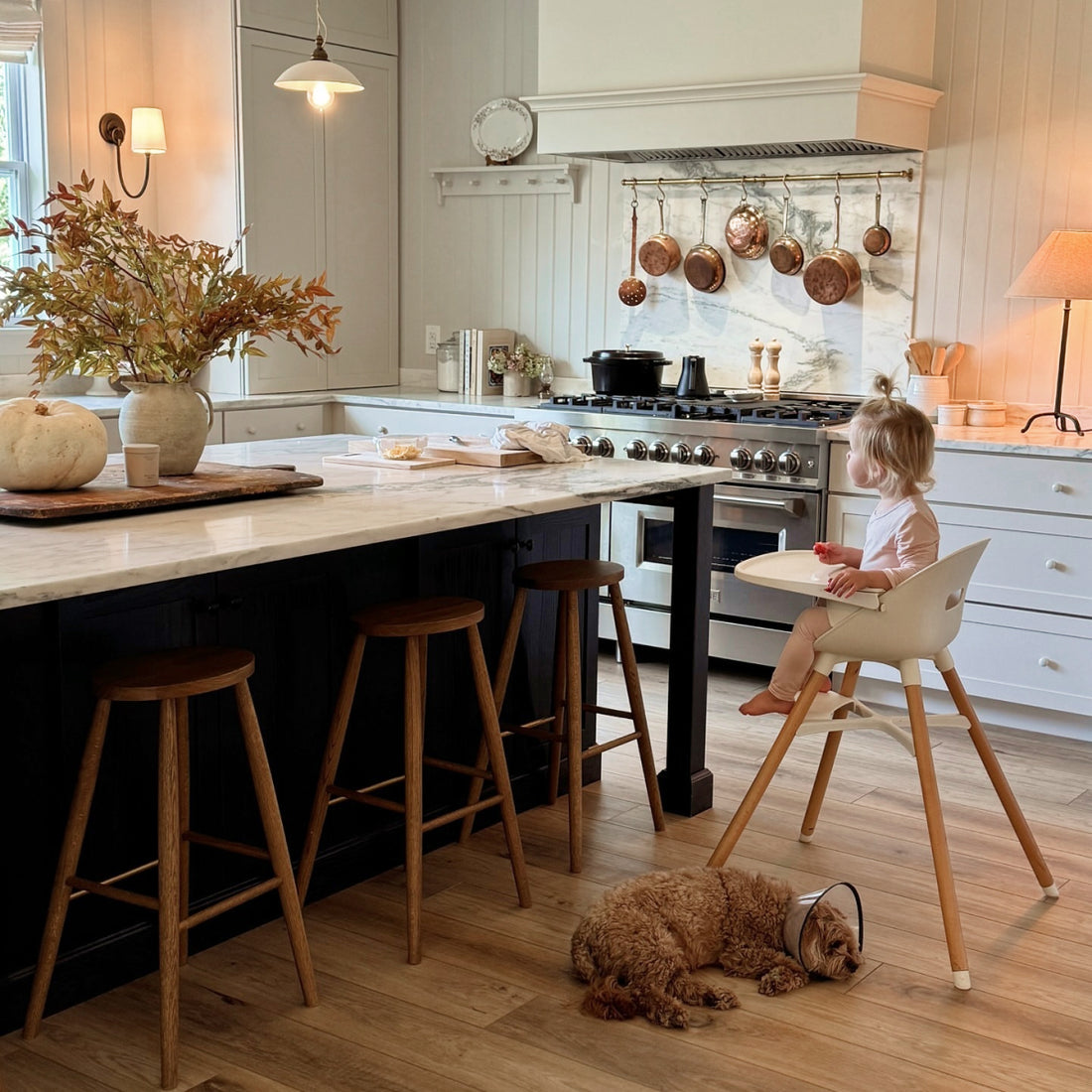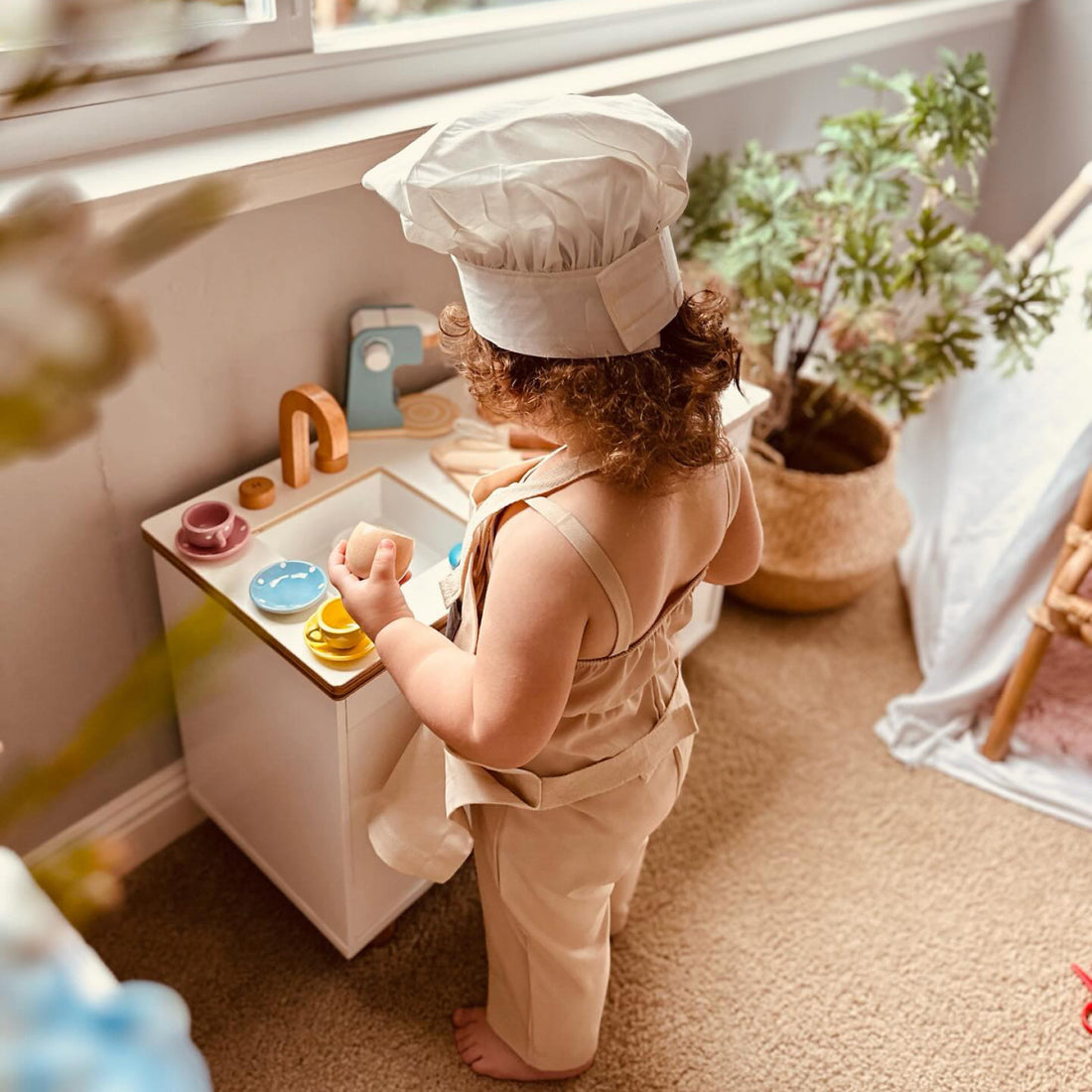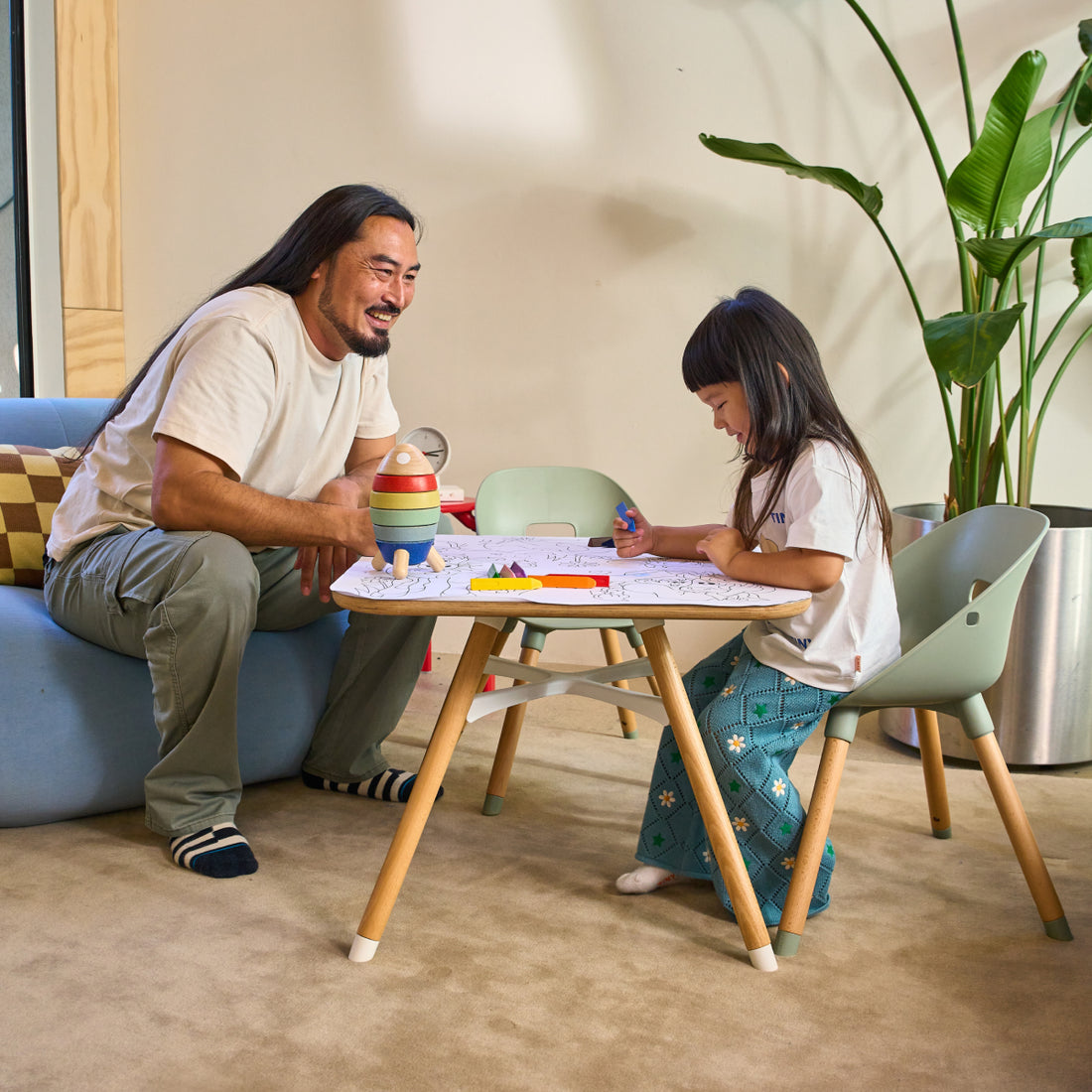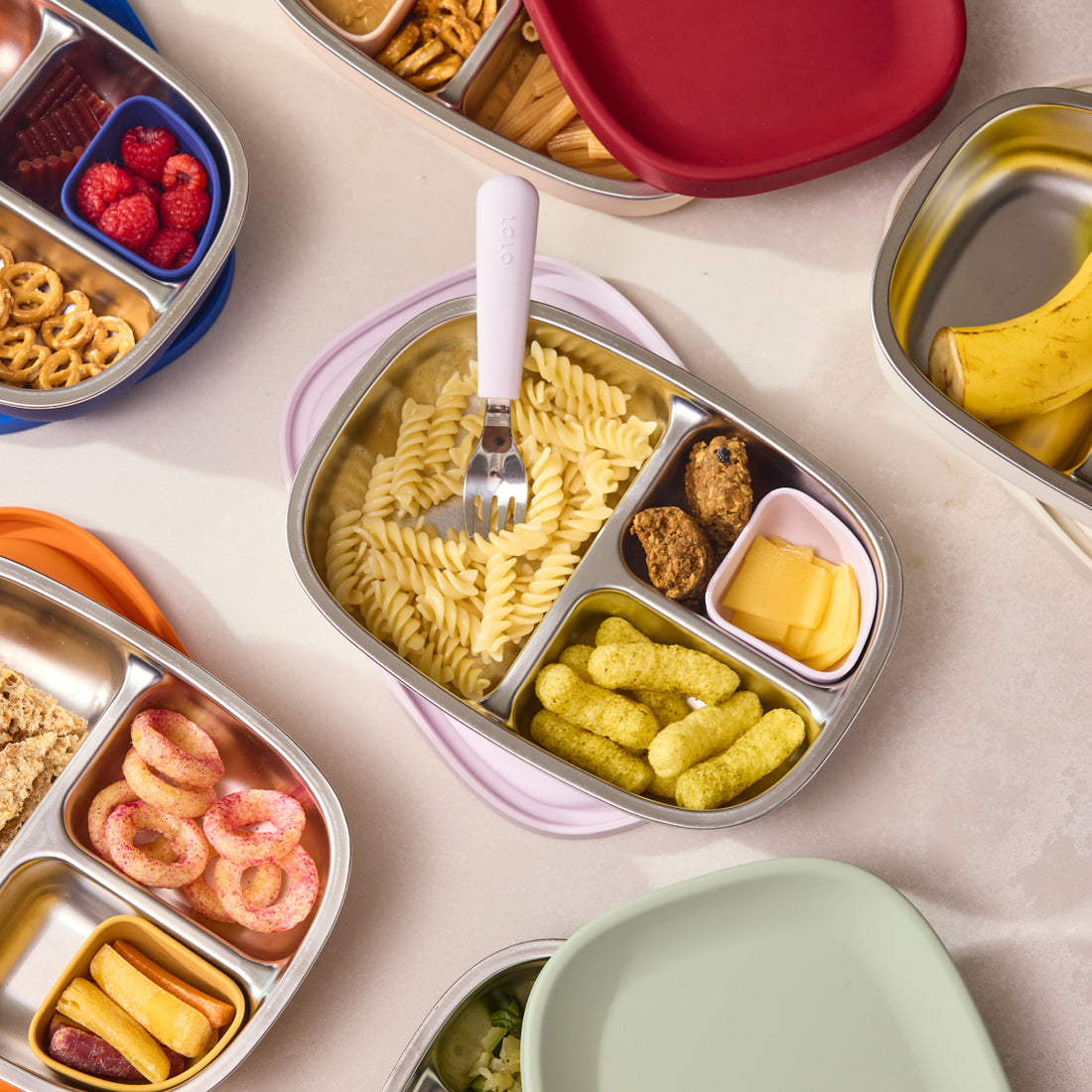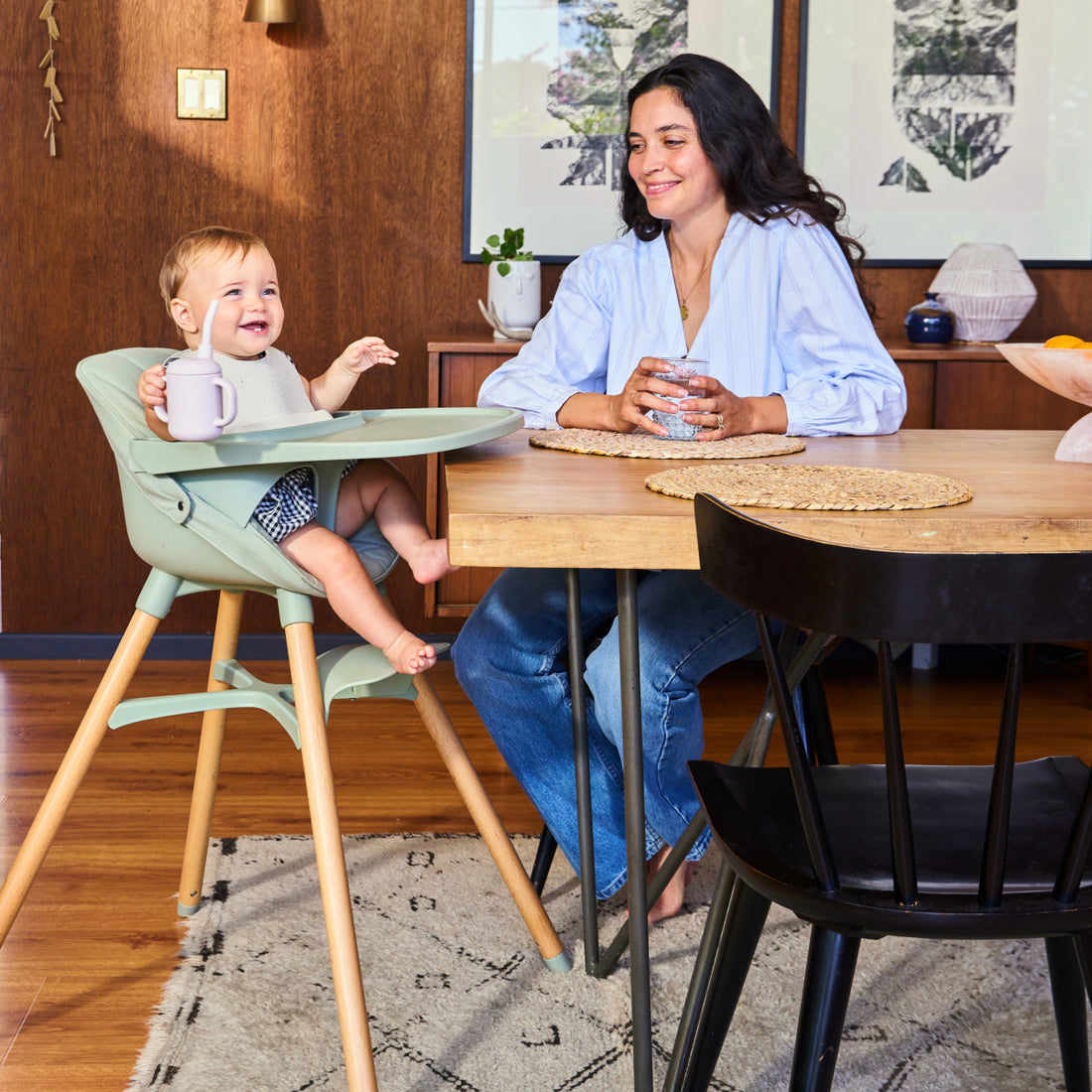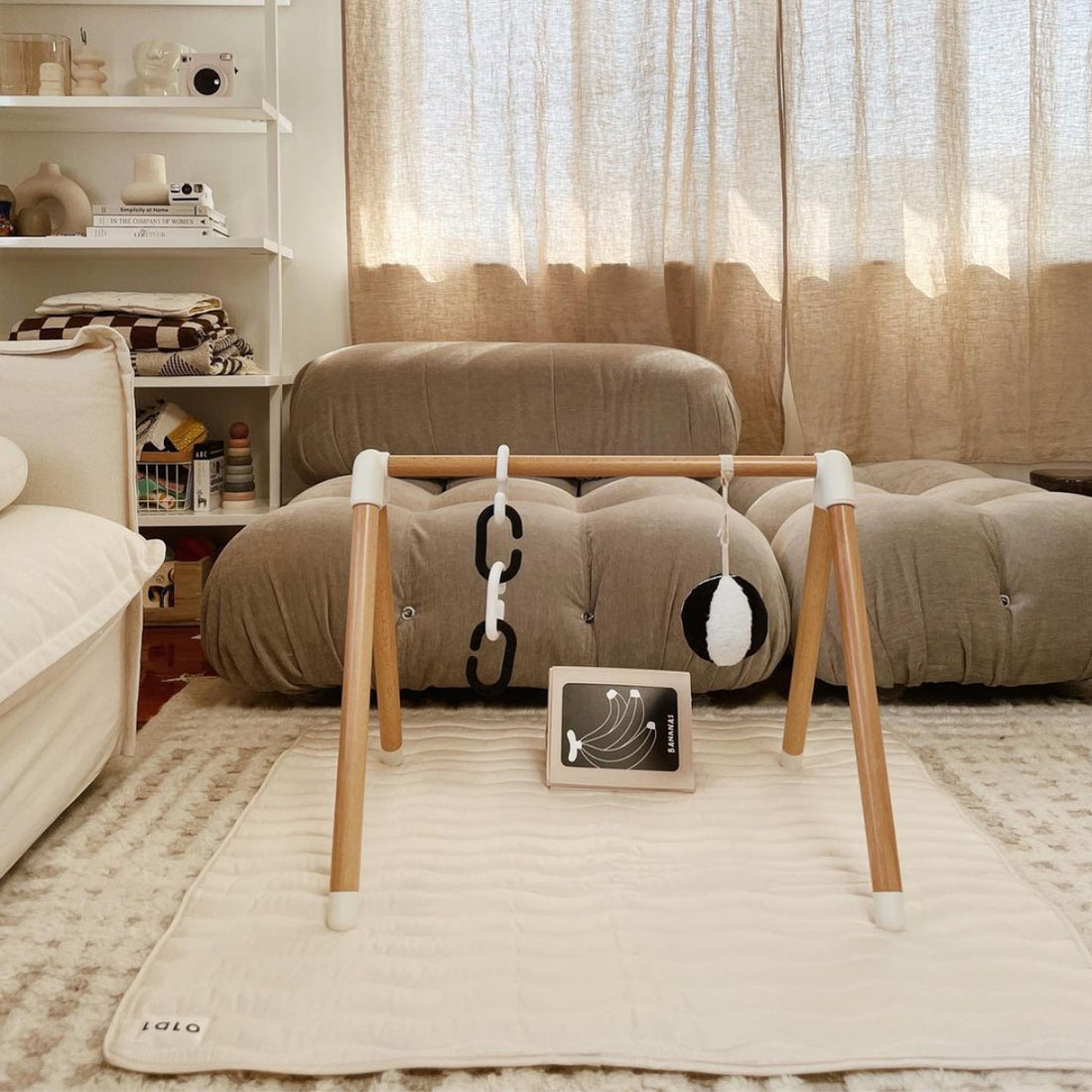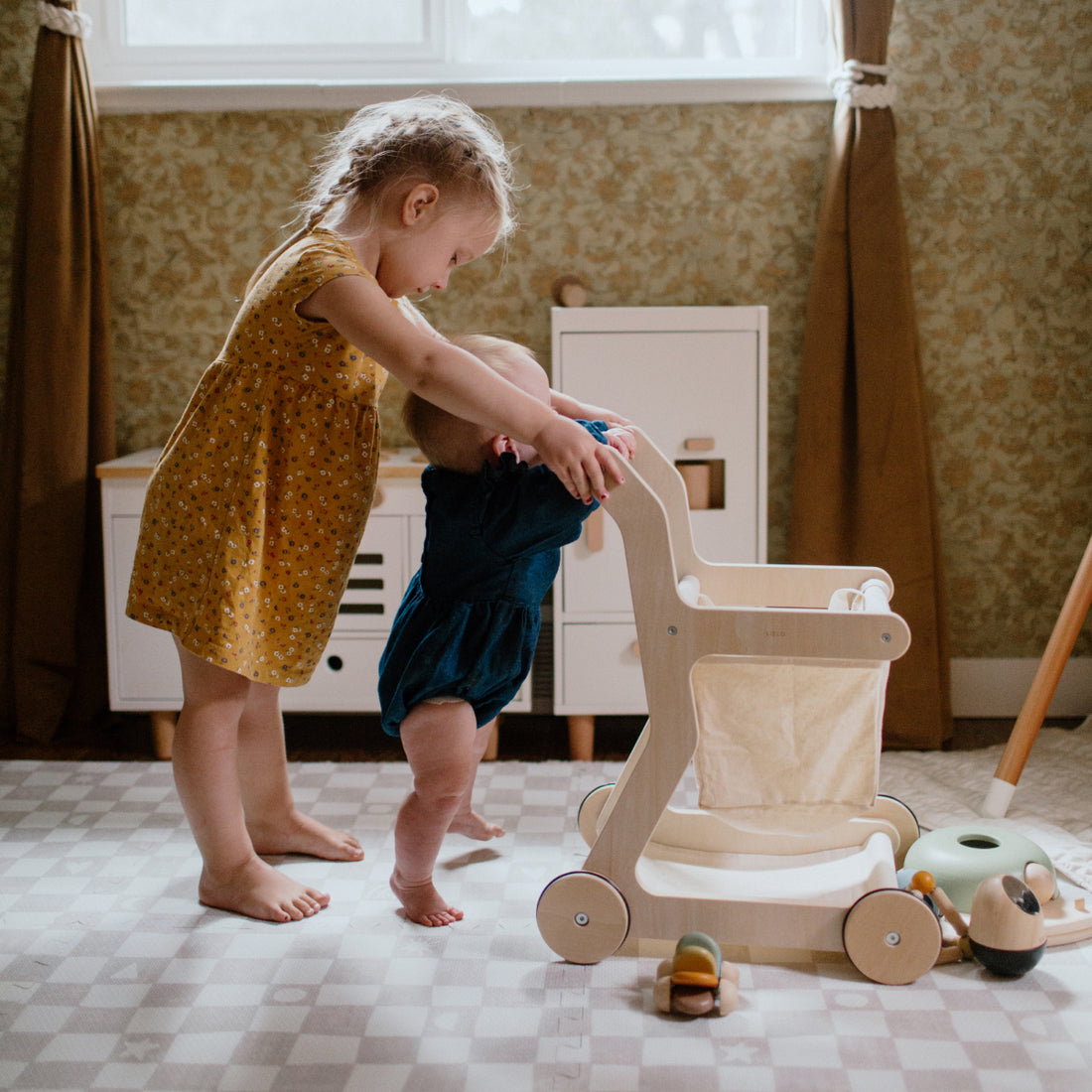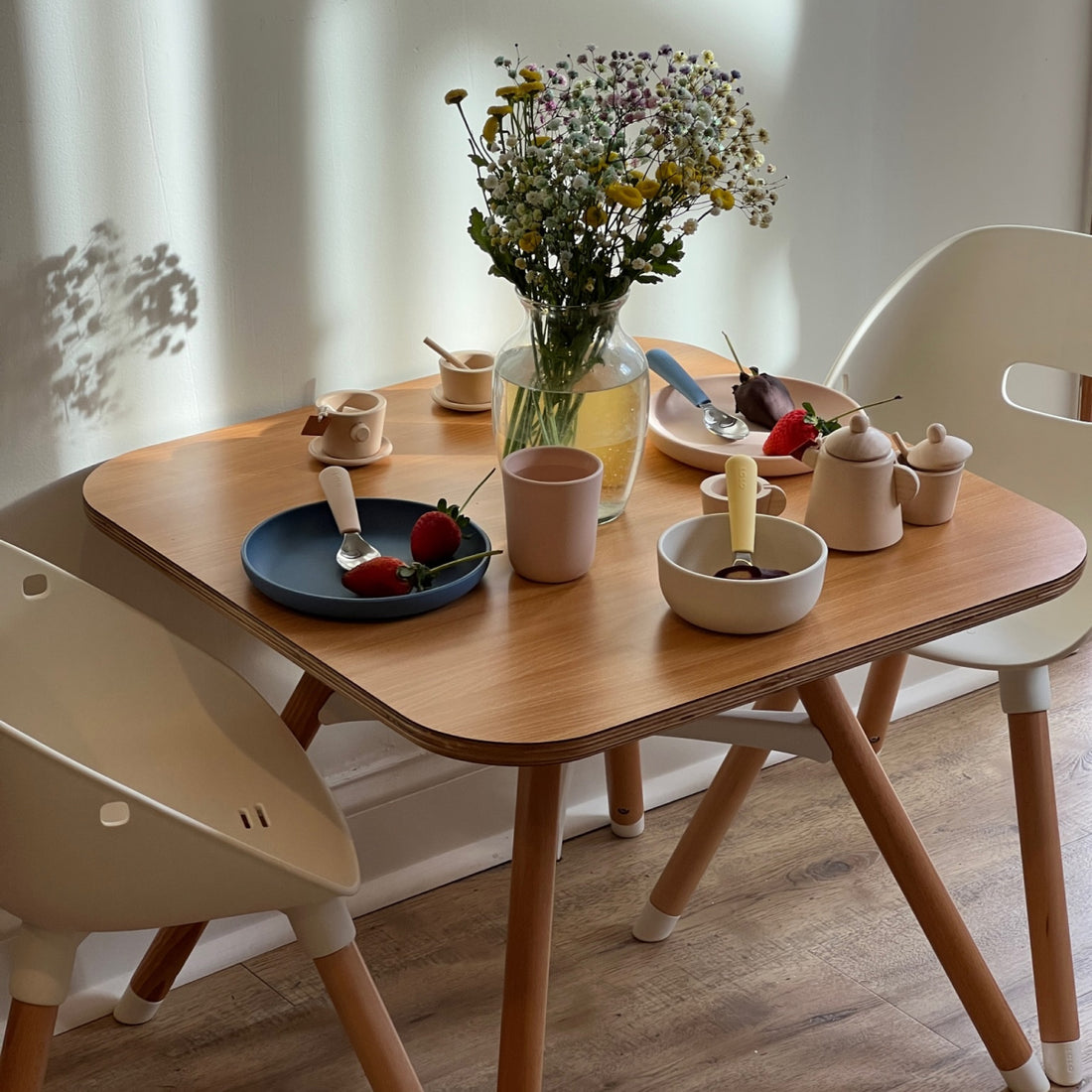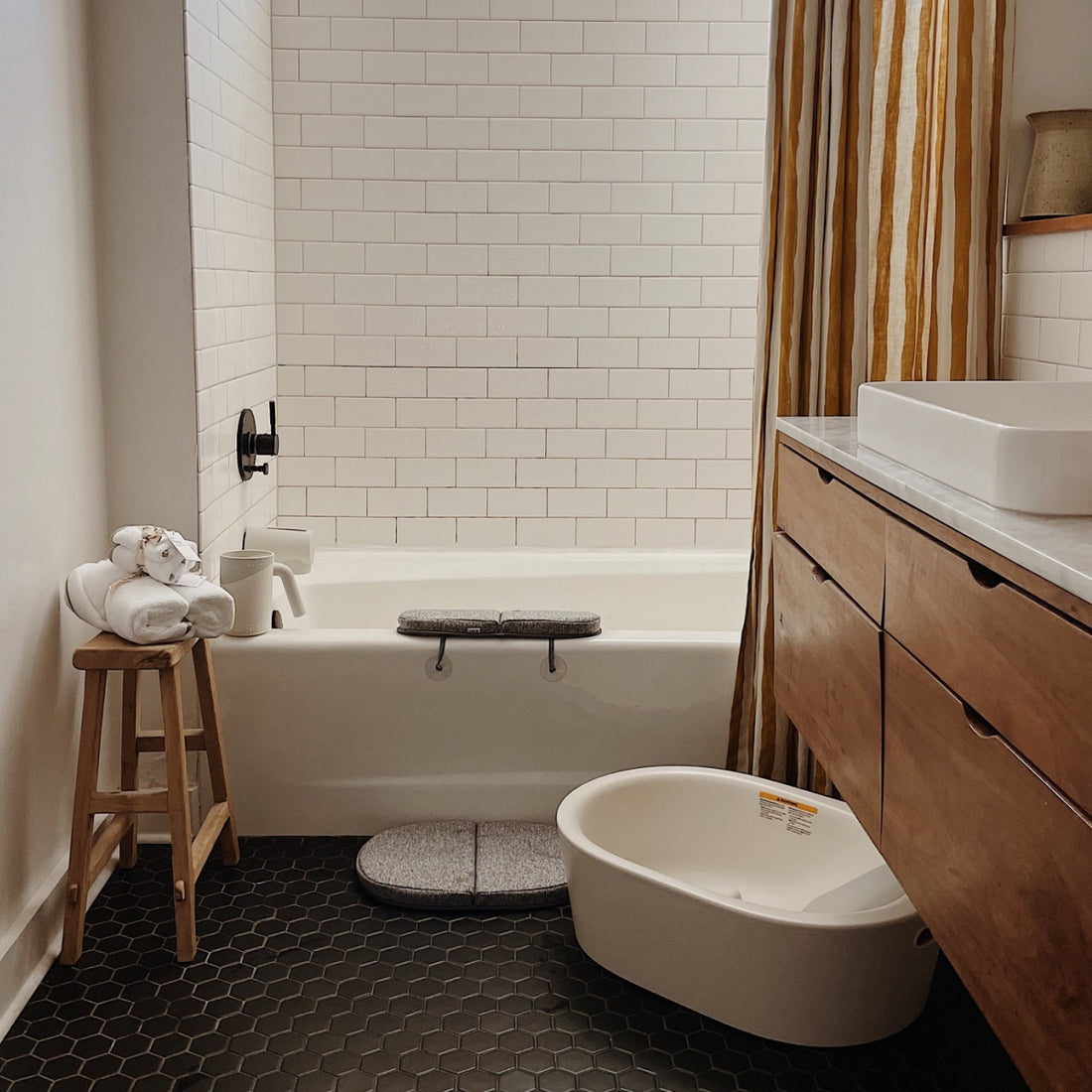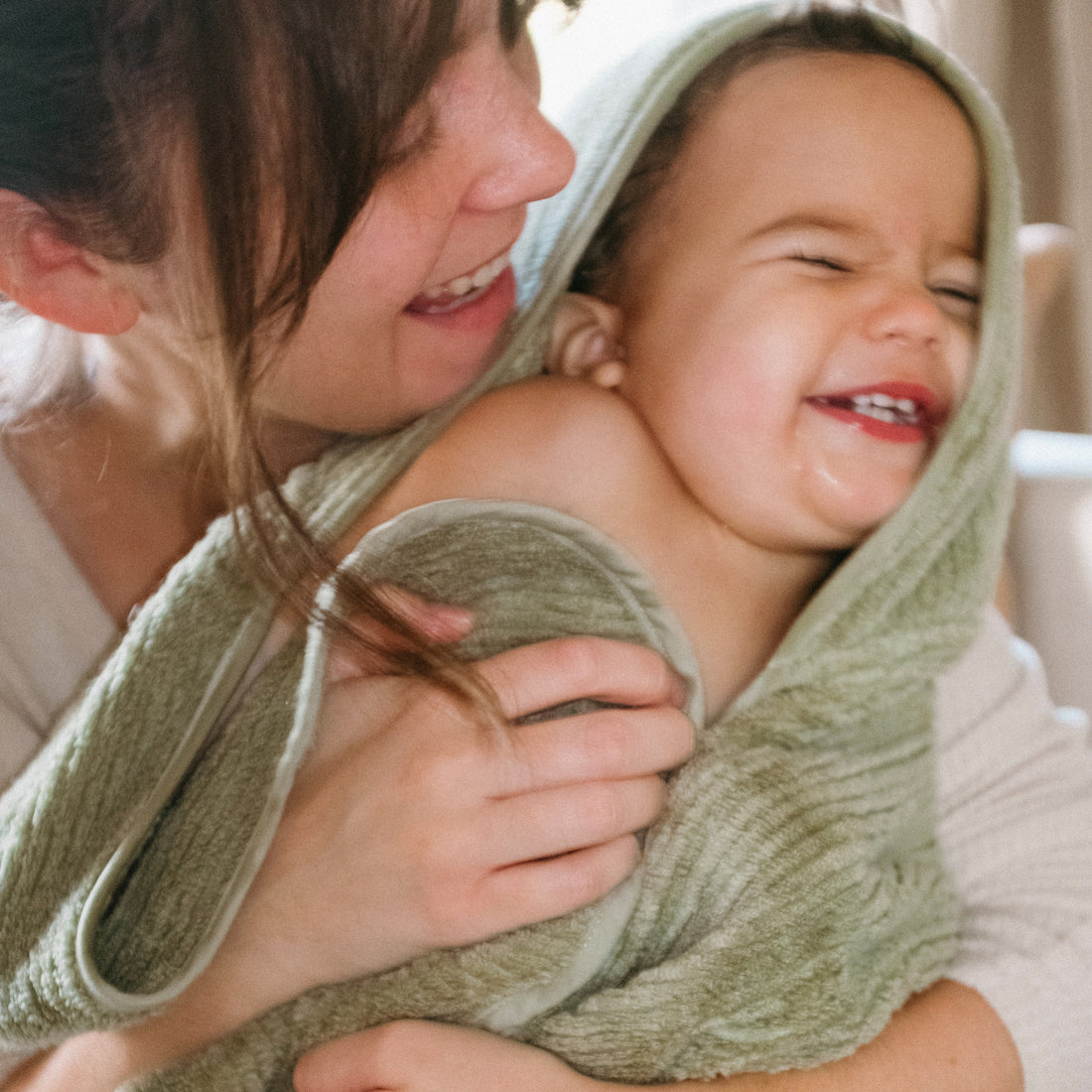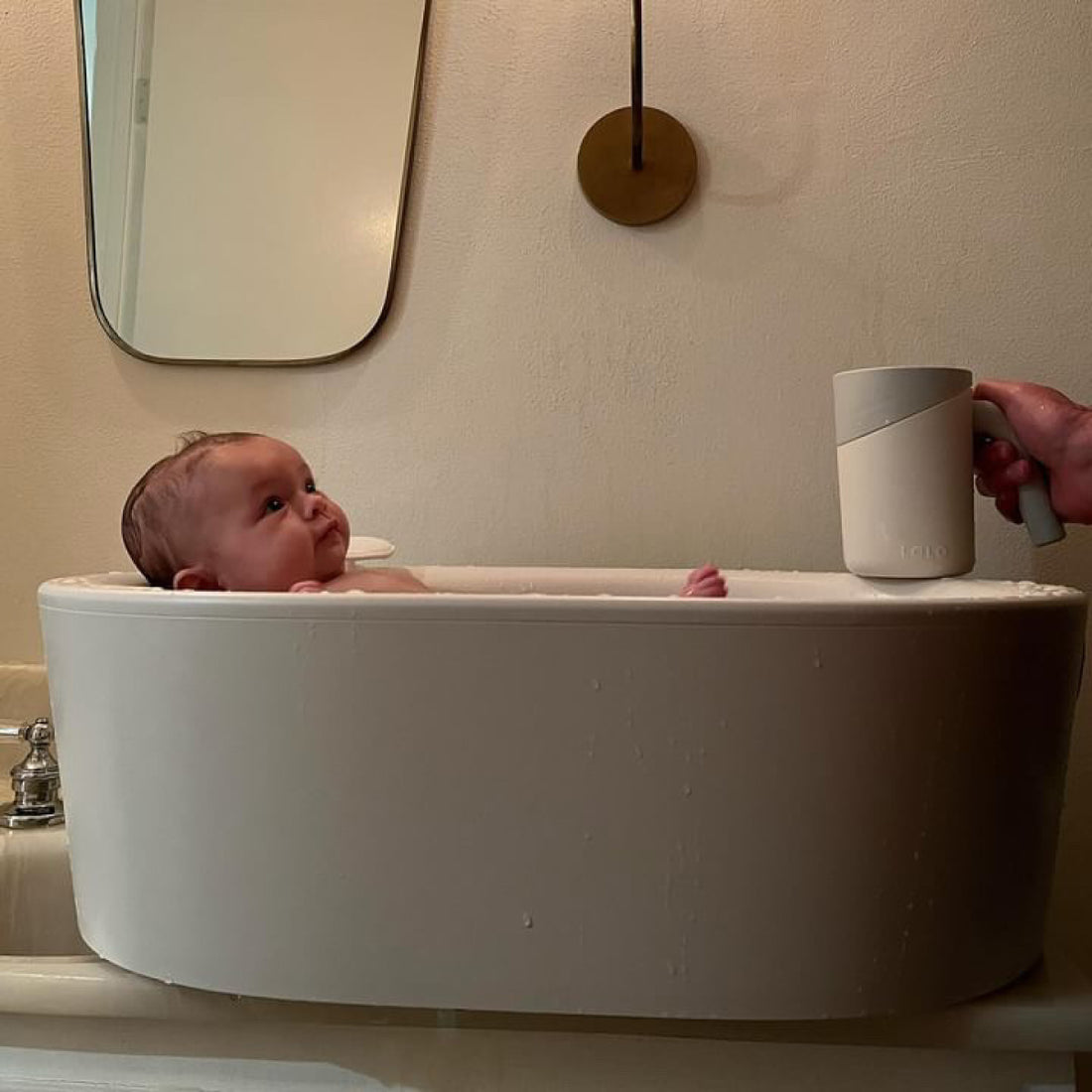Welcome to our Q&A session with Jordyn Koveleski Gorman from Eat Play Say! Jordyn is not only a highly experienced speech-language pathologist, feeding specialist, and play expert but also a mom of two. She’s here to help us understand child development through play and why it’s so integral to learning in early childhood.
-
Question: There is a common phrase “littles learn best through play.” What does that really mean?
-
Answer: In a nutshell, it means that little ones learn best when they are in an environment where they can explore and take the lead. Many people envision “learning” to take place when a little one is sitting in a chair, looking at someone, maybe flashcards are involved, or a book is being read cover to cover. And what research has found, especially with children under the age of 5, letting them lead through play is the best way for them to learn concepts. And as caregivers, we can be with them, wherever they are, playing with them and helping them learn, but we are letting them take the lead as to what the activity is and what is being played with. They pick the activity, we bring the language to them.
-
Question: Is there a certain age when play skills start to switch? When do you typically see advancements in play skills with little ones?
-
Answer: There are a few “jumps” in play skills. The first jump occurs around 6 months of age. From a motor perspective this is when baby starts to sit up with support and is able to reach and grasp for toys. From a speech-language perspective, baby is able to follow basic directions with visuals (put in, take out). That combination of skills starts baby’s journey to playing functionally.
-
Question: Many people believe that pretend play is for older kids, like preschoolers and up. But we know that’s actually not true. Can you explain when little ones start to engage in pretend play? How early is this happening?
-
Answer: The second “jump” in play skills occurs right around a year and this is really where we see little one’s play take off! All of that functional play that baby has been engaging in from 6-12 months is going to turn into pretend play. Driving the car on the road and making a Vrrrrmmm sound, picking up a toy phone and putting it to their ear, grabbing the toy broom and acting like they are sweeping the floor. As their motor skills refine from 12-18 months, those play skills will get even stronger. Then around 18 months we start to look for the “language burst.” And it’s not surprising that it’s happening because littles learn best through play, and what has been happening from 12-18 months? Their play skills have been taking off!
-
Question: What do a child’s play skills tell you about their speech-language skills and overall development?
-
Answer: Whenever a parent comes to me with a concern about language development, the first thing I ask them about is their child’s play skills. I usually send them our Free 0-24 Month Milestone Checklist that has all the gross motor, fine motor, and speech-language milestones on it and ask them to fill it out and see how their little one is doing. Children meet milestones through play, so figuring out what areas of development need help and then how to use play to help them in those areas is key. Our Infant and Toddler Playbooks do just that- teaching parents what to do at home to help their little ones meet all of their milestones in the first two years.
-
Question: If you could pick one pretend play toy for a little one, what would it be and why?
-
Answer: Anything with pretend food: play kitchen, play fridge, play food. There really isn’t anything more universal than eating. We do it several times a day. We buy food. We prepare food. We eat food. We throw food. The language models are endless and playing with pretend food can actually help littles with mealtimes themselves. So the feeding specialist in me also loves to play pretend with food for that reason.
Remember, play isn’t just a fun activity for children—it’s a powerful learning tool that shapes their language, motor, and social skills from the earliest stages. Whether it’s pretend food or a favorite toy, every playful moment is an opportunity for growth.
Meet the Expert
Jordyn Koveleski Gorman of Eat Play Say, MS, SLP, Speech-language pathologist and feeding specialist

Jordyn lives in a small town in Pennsylvania with her husband and two littles. She is a speech-language pathologist and feeding specialist and created Eat Play Say because she wanted parents to feel good about their little one’s speech + feeding development.
Shortly after becoming a mom, Jordyn realized how little information there is for parents about how to support their baby’s speech, language, play, and feeding skills. ALL of those things are connected! Yet information is never delivered in a holistic way. Eat Play Say was built as a supportive place for parents to get the information they deserve about development, and to feel good about how to support their little one at home.





